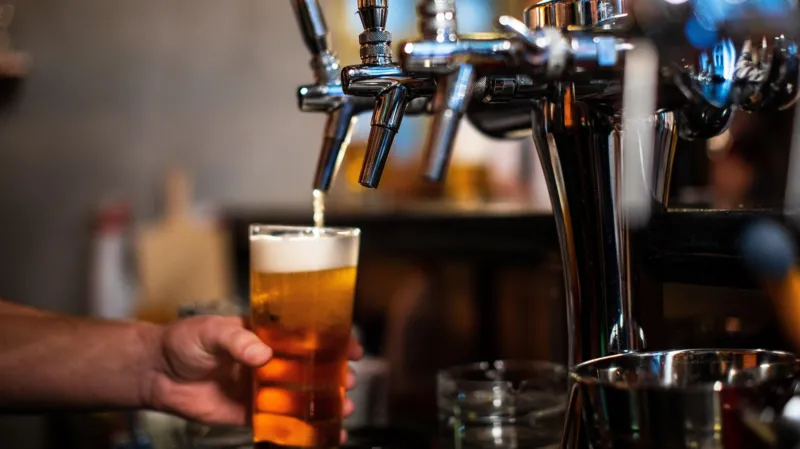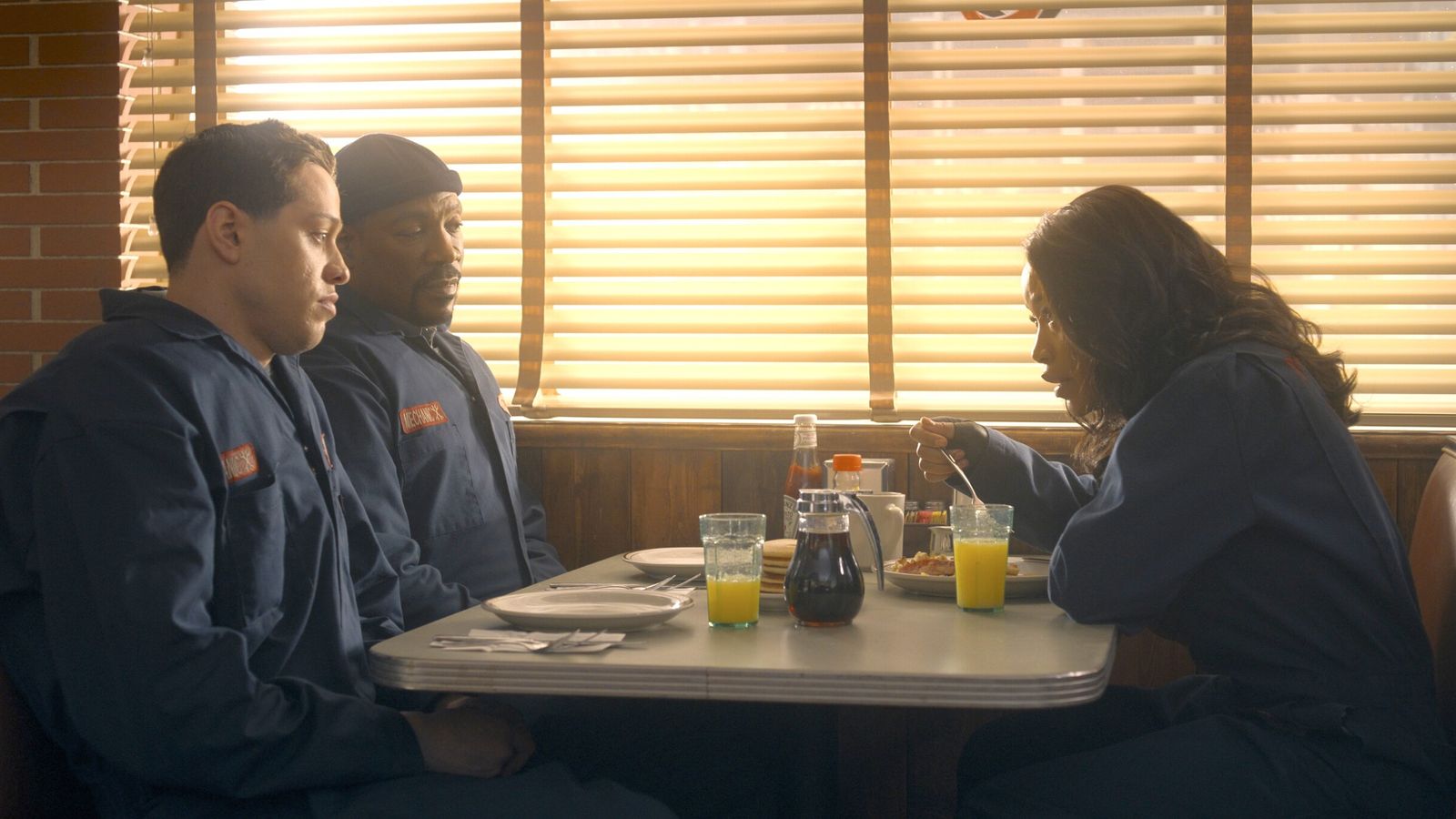Pour a proper pint, Trading Standards tells pubs
More than two thirds of pints of beer and glasses of wine being poured in pubs and bars in the UK contain less drink than they should, new research suggests.

A report published on Friday by the Chartered Trading Standards Institute (CTSI) found 70% of the beer and wine it sampled across the country was being short measured.
It calculated that this meant an average beer drinker was losing around £88.40 a year, while a wine drinker was losing around £114.40 per year.
Trading Standards urged pubs and bars to make sure they are correctly measuring their drinks.
The research comes as alcoholic drink prices have risen rapidly in the past few years.
According to the Office for National Statistics, alcohol prices have increased 6.1% in the past year. However, as inflation has slowed recently, in the last month they only rose by 0.3%.
Labour MP Jess Phillips said the ongoing cost of living crisis meant being served short measures "adds insult to injury".
"Being able to afford to go out for a drink is not easy and you should get what you pay for," she added.
CTSI found that if beer was short measured, it was on average 4% less than a full pint, while for wine it was on average 5% lower than the 175ml standard glass.
The consumer body said that among the 137 drinks it sampled across 77 pubs and bars, the most under-poured drink was bought in Walsall, in the West Midlands, which was short by 15%, or 26ml.
Large deficits were also found in Belfast and Havering in east London.
Duncan Stephenson, a spokesman for CTSI, told the BBC it would not identify individual locations or chains it had found were under-pouring drinks "because we don't want to do that".
He also said it was "difficult for us to say" whether there were particular parts of the UK where short measures were likely to be more commonplace as the study was a "snapshot" with "a small sample size".
CTSI has called for broader research to be undertaken into the issue.
John Herriman, chief executive of CTSI, said it was "calling on the hospitality sector to ensure that consumers get value for money by making sure they are correctly measuring the drinks they are serving to customers".
But Emma McClarkin, chief executive of industry body the British Beer and Pub Association and a former Conservative MEP, told the Mirror that landlords "in no way want to be accused of short-serving the millions of customers who enjoy visiting our nation's pubs each week".
Off with their heads?
CTSI researchers measured the sample beers based on a pint being completely liquid - though there is an ongoing debate about whether the head should be counted as part of the pint.
When a 5% head - the industry standard for beer - was discounted, CTSI found around a third of the beers it sampled were still short measured.
The Campaign for Real Ale says that consumers should have a legal right to an entirely liquid pint.
Its chairman, Nik Antona, said punters were "well within [their] rights" to ask for a top-up if short measured by more than 5%.
He added: "Consumers shouldn’t have to feel short changed when they support their favourite pubs, social clubs, and taprooms."
Ms McClarkin said industry guidance reflected a requirement for a 95% liquid pint and affirmed that consumers who wanted a smaller head on their beer "should always feel free to ask for a top-up and should never be refused".
Polling conducted on behalf of CTSI by Censuswide found more people thought a head should not be counted as part of a pint than those who do - 35% compared to 26% - though there was no clear majority on the issue.
The survey of 2,001 UK adults also found a generational divide over whether pubs and bars should be allowed to pour spirits without a measuring device: around half of those aged under 45 said they should, while 59% of those aged 45 or older said they should not.
-bbc







